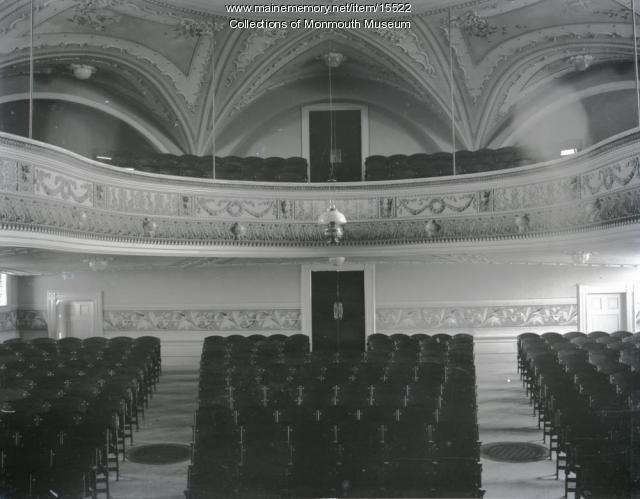Keywords: Maine Music Festival
- Historical Items (41)
- Tax Records (0)
- Architecture & Landscape (0)
- Online Exhibits (15)
- Site Pages (14)
- My Maine Stories (11)
- Lesson Plans (0)
Online Exhibits
Your results include these online exhibits. You also can view all of the site's exhibits, view a timeline of selected events in Maine History, and learn how to create your own exhibit. See featured exhibits or create your own exhibit
Exhibit
Music in Maine - Bluegrass Music
"We met at the Salty Dog Festival in 1984, attended many festivals and were totally immersed—meeting other musicians, camping and playing music…"
Exhibit
Music in Maine - Community Music
"Community Music Music makers in Maine make instruments, create music in their communities, and honor heritage."
Exhibit
"… East Coast performing at powwows, music and art festivals, and other events, sharing our style of singing."
Exhibit
Hermann Kotzschmar: Portland's Musical Genius
During the second half of the 19th century, "Hermann Kotzschmar" was a familiar household name in Portland. He spent 59 years in his adopted city as a teacher, choral conductor, concert artist, and church organist.
Exhibit
Music in Maine - Opera, Orchestras and Stages
"… Portland’s first Maine Choral Association festival in 1897, where they billed Blauvelt as, “America’s favorite Concert Prima Donna Soprano.” Opera…"
Exhibit
Music in Maine - Community and School Marching Bands
"… Elizabeth, South Portland, Berwick Academy, and Sanford parade down Park Avenue in Portland as part of a band festival.Maine Historical Society"
Exhibit
Music in Maine - Rock and Roll, Punk, and Elvis
"… and “Same Band promises to be nice as Maine Festival.” Most band members performed with stage names like Dual Space Organs (John Etnier), Swill…"
Exhibit
A fire and two men whose lives were entwined for more than 50 years resulted in what is now considered to be "the Jewel of Portland" -- the Austin organ that was given to the city of Portland in 1912.
Exhibit
Lillian Nordica: Farmington Diva
Lillian Norton, known as Nordica, was one of the best known sopranos in America and the world at the end of the nineteenth and beginning of the twentieth centuries. She was a native of Farmington.
Exhibit
Maine Eats: the food revolution starts here
From Maine's iconic lobsters, blueberries, potatoes, apples, and maple syrup, to local favorites like poutine, baked beans, red hot dogs, Italian sandwiches, and Whoopie Pies, Maine's identity and economy are inextricably linked to food. Sourcing food, preparing food, and eating food are all part of the heartbeat of Maine's culture and economy. Now, a food revolution is taking us back to our roots in Maine: to the traditional sources, preparation, and pleasures of eating food that have sustained Mainers for millennia.
Exhibit
Summer Folk: The Postcard View
Vacationers, "rusticators," or tourists began flooding into Maine in the last quarter of the 19th century. Many arrived by train or steamer. Eventually, automobiles expanded and changed the tourist trade, and some vacationers bought their own "cottages."
Exhibit
Passamaquoddy Indians from Washington County traveled to Portland in 1920 to take part in the Maine Centennial Exposition. They set up an "Indian Village" at Deering Oaks Park.
Exhibit
Maine is home to dozens of summer-long youth camps and untold numbers of day camps that take advantage of water, woods, and fresh air. While the children, counselors, and other staff come to Maine in the summer, the camps live on throughout the year and throughout the lives of many of the campers.
Exhibit
St-Jean-Baptiste Day -- June 24th -- in Lewiston-Auburn was a very public display of ethnic pride for nearly a century. Since about 1830, French Canadians had used St. John the Baptist's birthdate as a demonstration of French-Canadian nationalism.
Exhibit
The astronomical arrival of winter -- also known as the winter solstice -- marks the year's shortest day and the season of snow and cold. It usually arrives on December 21.















